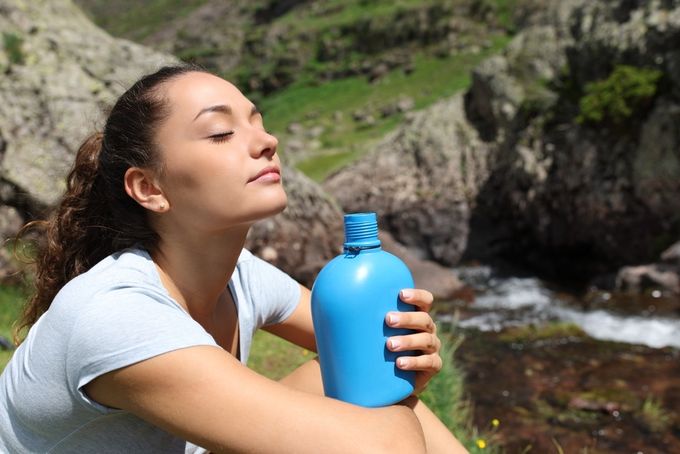4 Alternatives to Tap Water: Elevate Your H2O Game
Published October 6, 2024

Water, the elixir of life, is one of our planet's most precious resources. We're all aware of its importance to our survival, but did you know that not all water is created equal? The characteristics, taste, and nutritional profile of water can vary significantly depending on its source.
We sat down with Anistacia Barber, a water sommelière who’ll help us understand the nuances of its taste, the mineral profile, and the overall impact on the human body.
Understanding Water and Its Different Sources
Water is essential to life, but not all water is created equal. Anistacia helps us delve deeper into the complexities of this vital resource as we explore some of its common sources and their characteristics.
Tap Water: Hidden Dangers and Unexpected Benefits
While tap water is a convenient source of hydration, it often harbors untested or unknown chemicals that can pose safety concerns.
Considering the still unresolved Flint water crisis, it’s really not surprising that fewer Americans trust their tap water.
However, we shouldn't overlook the fact that it contains beneficial minerals like calcium, magnesium, sodium, and potassium, as well as trace minerals like iron and zinc.
Tip:
If you want to check your tap water quality, you can visit the EWG website and type in your zip code.
Bottled Water: Unseen Problems
Bottled water, despite its popularity, comes with its own set of issues. The presence of microplastics is concerning, leading to recommendations for filtering tap water at home as a safer alternative.
Contamination: The Unseen Threat
Water contamination is a significant concern. The material of the pipes that the water travels through can affect its quality. Cities with older infrastructures, like Flint, Michigan, have experienced serious health issues due to lead pipes contaminating the water.
Electrolytes: The Essential Minerals
Electrolytes, which include sodium, potassium, calcium, magnesium, and chloride, are vital for the body's functions. However, one should be mindful of the high sugar content in common sources like sports drinks and opt for healthier alternatives like bottled spring or mineral water.
Different Types of Water and Their Benefits
From spring water to structured water, there is a world of alternatives to tap water, each providing unique benefits and qualities. Let's explore some of these alternatives.
Spring Water: A Natural Alternative
Spring water is a natural source of hydration, containing important minerals and nutrients. Unlike tap water, which undergoes processing and chemical treatment, spring water is untampered and sourced directly from the ground.
“Comparing tap water to spring water is comparing a frozen, commercially grown, pesticide-laden strawberry after it's been chopped up and frozen to an organic strawberry freshly picked off the vine.”
Coconut Water: A Nutritious Addition
While coconut water is a healthy beverage, it isn't an ideal replacement for regular water due to its sugar and calorie content. However, depending on the quality of the local tap water, it could be a healthy addition to one's diet.
Mineral Water: A Hydration Powerhouse
Mineral water is a hydration powerhouse, providing essential electrolytes and vital minerals like calcium, magnesium, and potassium, which benefit bone strength, muscles, and brain function. It contains no sugar, calories, or artificial substances, making it a fantastic option for hydration.
Structured Water: Enhancing Hydration
Structured water, a concept that describes water's ability to organize itself into formations that our bodies can more easily use at a cellular level, is another interesting aspect of hydration. This water type, which includes spring water, can enhance nutrient absorption, energy levels, detoxification capabilities, and balance pH levels in the body.
» Learn how to make your own structured water
Technique for Better Hydration
Beyond the type of water we drink, how we consume it can also significantly impact our health and hydration levels. Let's look at an ancient technique that promotes not just better hydration, but mindfulness as well.
Ayurvedic Wisdom: A Mindful Sip
An age-old Ayurvedic technique recommends holding water in the mouth before swallowing it. This method not only promotes more effective water absorption into cells and the brain but also cultivates a moment of gratitude for the life-sustaining liquid.
Navigate Your Water Choices
Understanding water—its different sources, the health benefits they can offer, and mindful hydration techniques—is crucial for our wellbeing. It is evident that while tap water remains a staple, there are numerous other alternatives to explore that can help elevate our hydration game.













































